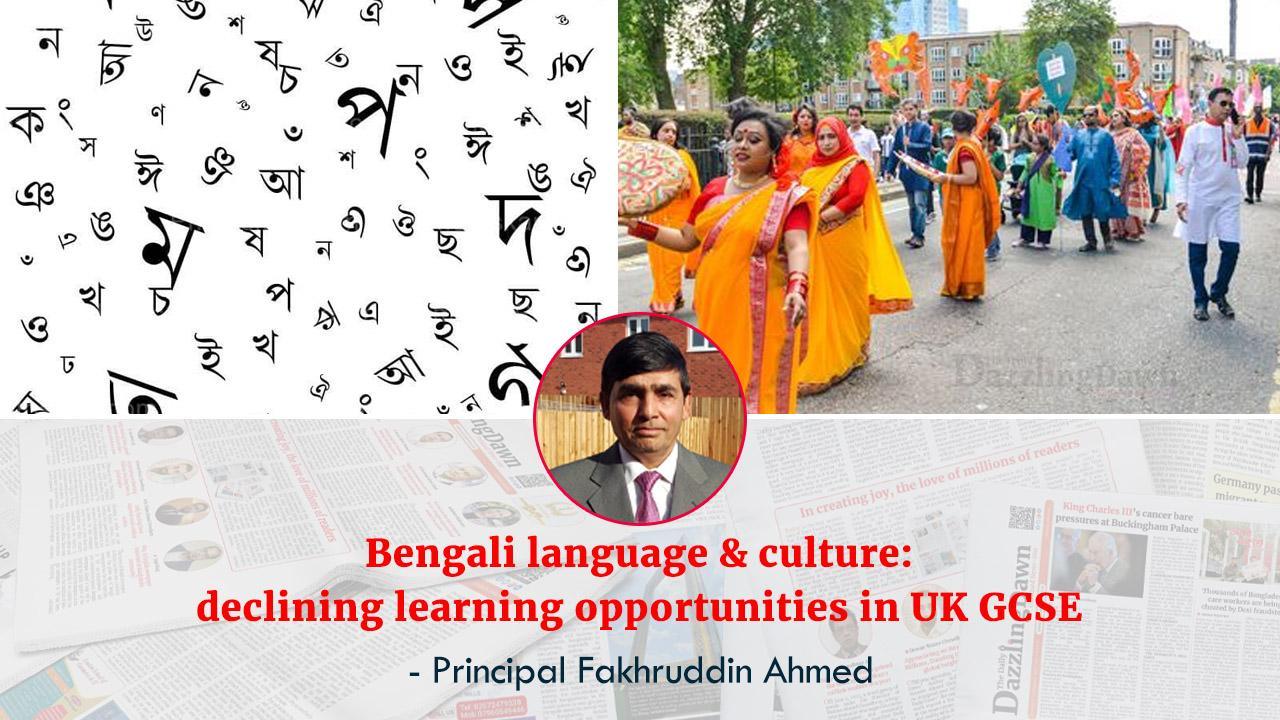In 2021 census shows, there were a total of 652,535 Bangladeshis in the United Kingdom, forming just under 1% of the total population. Recent data shows that in the UK, Bengali language is more widely spoken than Japanese, Punjabi, Urdu and lots more languages that are included in among the subjects in GCSE school’s curriculum as a Modern Foreign Languages (MFL) in Britain. It is in fact that Bangladesh and Eastern India (West Bengal, Assam where they speak Bengali) are also known for their unique landscapes of Bengali speakers originated in the UK.
Recent data shows that Bangladesh is the 2nd fastest economically growing country in recent years. It's developing faster than even India & Pakistan. While many Bangladeshi origin children can speak Bangla/Sylheti fluently especially in home, read reasonably well and write a bit but their academic preference of Bengali are sharply declined especially in recent years due to the lack of language learning opportunities. There are lots of frustrations, controversy arises due to local authorities’ budget cut, lack of fundings etc. whereas it’s been heard during last Tower hamlets election campaign that they will do everything they can to promote native culture, language and allocate more budget for Bengali learning opportunities especially in schools in LA.
In British curriculum, many students need to choose Bengali in year 8 and continue to study it in KS4 in GCSE level. Learning Bengali in schools till GCSE helps students develop their language skills in a variety of contexts and understand the culture of countries and communities where Bengali is spoken. It encourages enjoyment of language learning and the recognition that language skills enable students to take their place in a multi-lingual global society.
As students can take Bengali as one of the Modern Foreign Language for their GCSEs with limited or no options. There are also lots of for and against opinions in this regard: some students questioning how this subject will help them in real life, whether it boosts their applications for higher studies in universities applications or helping in future career? Some agrees of course it's great to learn new skill, but the fact it's BENGALI, so not sure universities will even look twice at it. Majority students believe it’s spoken in comparatively such a small part of the world, so they feel it's not worth taking in terms of what they want to be when they are older. A small minority thought, if there was a demand for it in job market then they would have been hired into the workplace.
It’s absolutely crucial time now to raise the profile of Bangladeshis Community in a Multi-Faith, Multi-Racial and Multi-Cultural Britain. There are initiatives within communities in promoting Bengali history, culture and heritage but most of the new generations are deprived of Bangladeshi integrity and inclusion. It is very important in promoting and Strengthening the Bangladeshi community’s greatness through advancing social inclusion and programs of Education, Arts and Culture, Leisure and Sports and Welfare etc. In such a situation, Bangladeshi community leaders especially employers (such as BCA) can play a vital role in campaigning for Bengali young children’s integration, encouraging them by creating more job opportunities. Similarly, Bangladesh High Commission in Britain including Bangladesh tourism sectors, airlines etc need to realise the importance of it and come forward without delay.
One of the most important occasions now is to unite for awareness to establish own right, raise united voices, lobbying with government, politicians, MPs including local authorities. Also to continue campaign for reclaim recognition during MP’s election for more fundings for communities’ history and cultural development. Likewise, there are still plenty of opportunities to popularise Bengali language learning in British Bangladeshi new generations so that they can get well motivated through encouraging them parental level at home, creating the learning opportunities in schools, it’s curriculum especially in GCSE as a preferred option to choose.
--
Principal Fakhruddin Ahmed, Living and working in Wales

_4.jpg)
_6.jpg)
_1.jpg)




.svg)

